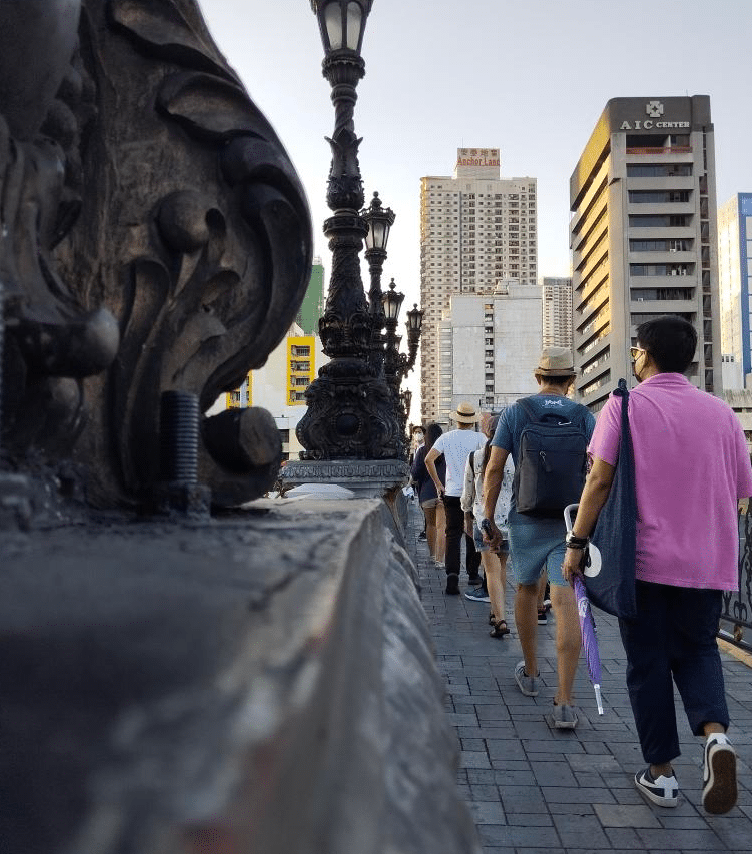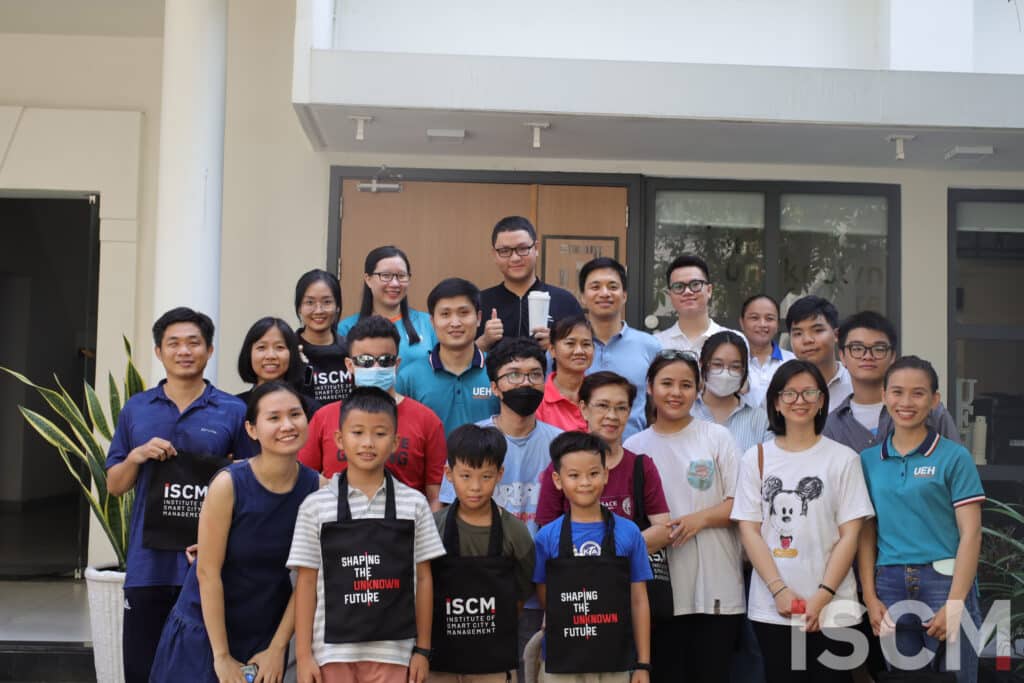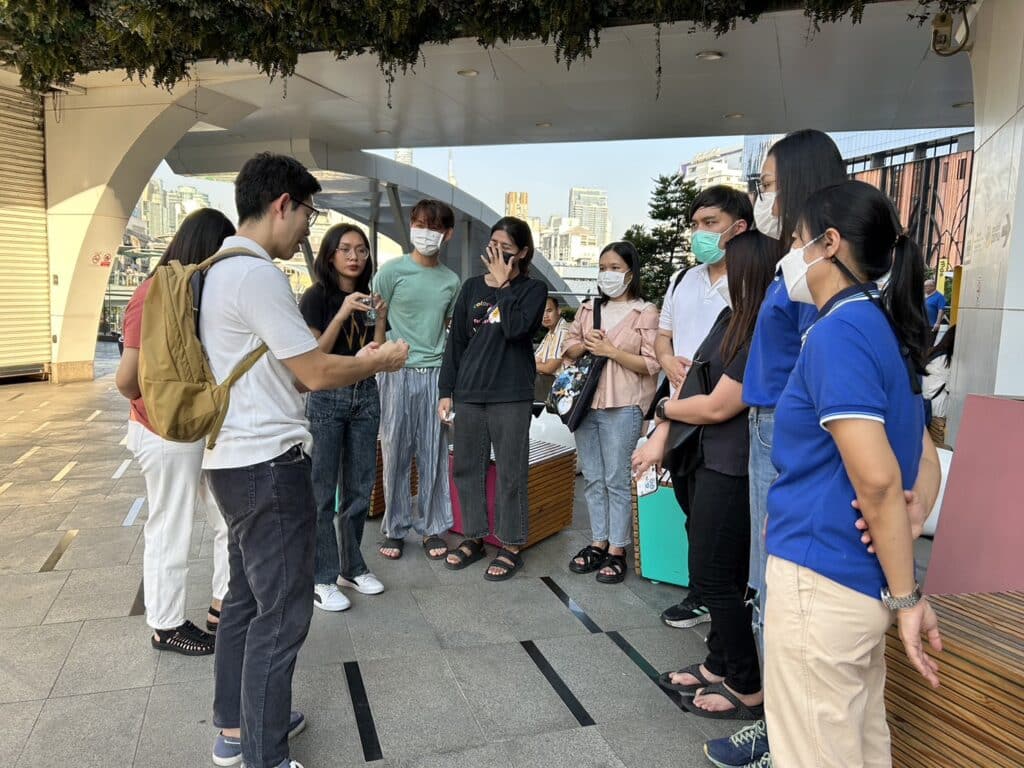
Jane’s Walk is an international event which celebrates active mobility and the exploration of urban spaces. This empowering event took place this year from 5 to 7 May across 10 cities in 5 countries. It brought together diverse communities to experience the beauty and potential of active transportation. In cities such as Melbourne, Davao, Baguio, Manila, Pasig City, Jakarta, Bandung, Solo, Ho Chi Minh, and Bangkok, participants embarked on a remarkable journey, discovering the joys of walking while embracing their surroundings.
The walk in each city encompassed a variety of themes, ranging from exploring historical landmarks to indulging in culinary delights, and even discovering their ways around the campus. Each city embraced a unique approach to the event, with some choosing to kick off the festivities in the morning, while others chose an evening start. After the walk, participants engaged in discussions session, sharing their experiences, and gaining valuable insights from others.
The event demonstrates that walking is an accessible form of activity. People from various backgrounds, ages, genders, and abilities who participate in each city add to the interest of this activity by sharing their walking experiences.
People were motivated to join this event for various reasons, and one of them is the belief that walking allows a more immersive exploration of their surroundings. For instance, in Davao, participants discovered that the routes they traversed were surprisingly walkable, opening their eyes to the possibilities of active transportation within their city. Additionally, the event provided locals in Surakarta the opportunity to experience public transport for the first time, offering a new perspective on their city. Interestingly, in Bandung, a few participants, particularly students, found themselves unfamiliar with the area and its routes, highlighting the importance of events like Jane’s Walk in familiarising individuals with their surroundings.
During the discussion about the factors that influence their decision to walk, most of them mentioned the poor quality of the pedestrian facilities and the challenging weather. For instance, it has been stated by participants in Ho Chi Min’s walk that numerous sidewalks were used to park motorised vehicles. While during the walk in Bangkok, some people think that the government sidewalk still falls short in terms of quality and cleanliness when compared to those provided by private properties.

The fact that each user’s walking experience differs from the next must be noted. One of the highlights is that most of the participants, who were women, shared that they do not feel safe walking alone, especially at night when there is a lack of lighting, and that they would rather walk on a busy street without proper sidewalks than in a quiet area with the sidewalk.
Every city offers interesting details to consider. Baguio appears to represent many of Jane Jacob’s ideas about downtown, while Ortigas as part of Pasig City showed the complete opposite with one of the routes explored showing no connectivity between the sidewalk and the attraction.
If we go by the book, it could work perfectly for the people around the area
Philip Peckson, Host of the walks in Baguio and Pasig City
Participants in the Jakarta’s walk agreed that removing the barriers was a means to encourage people to walk and use public places more freely after observing a number of changes that took place at several stops that were passed by.

With this in mind, the Jane’s Walk 2023: WE MOVE organised by Women on The Move, Women in Transport Leadership and in collaboration with local communities in each city, was successful in presenting perspectives on walkability regarding the surrounding based on what participants have experienced daily and during the walk.
This event empowers people everywhere around the world to go out and experience their city by foot. Let’s walk more!
NDC Transport Initiative for Asia (NDC-TIA) is part of the International Climate Initiative (IKI). The German Federal Ministry for Economic Affairs and Climate Action (BMWK) supports this initiative on the basis of a decision adopted by the German Bundestag. It supports China, India, and Viet Nam as well as regional and global decarbonisation strategies to increase the ambition around low-carbon transport.
 Jane's Walk in Manila ©Ulfi Puarada, GIZ
Jane's Walk in Manila ©Ulfi Puarada, GIZ
Ulfi Puarada